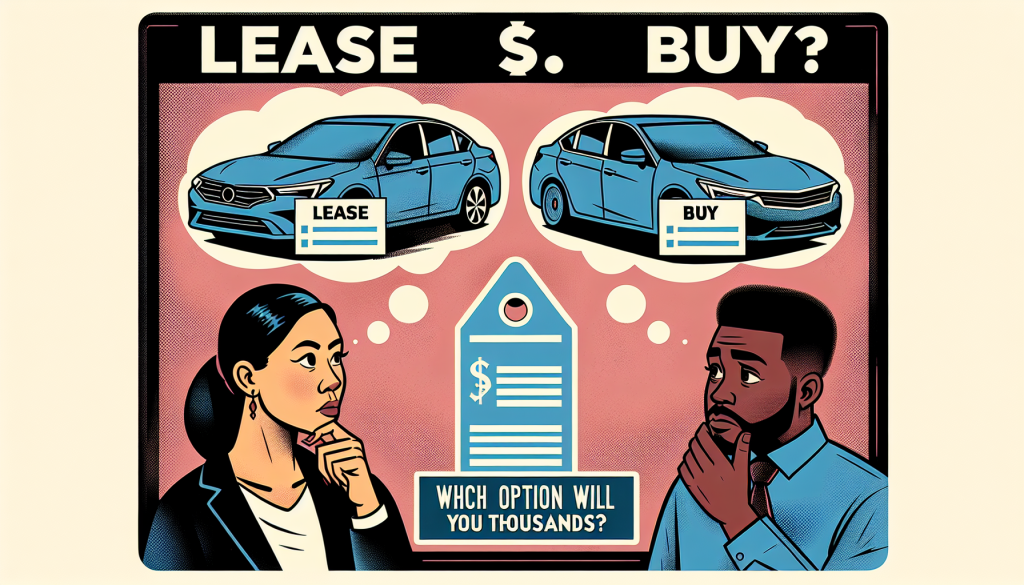
Lease vs. Buy: Which Option Will Save You Thousands?
Are you considering purchasing a new car but unsure if leasing or buying is the better option for you? You’re not alone. Many car buyers struggle with this decision, as both options have their benefits and drawbacks. However, if you want to save thousands of dollars in the long run, one option stands out above the other – buying. In this article, we’ll break down the lease vs. buy debate and explain why purchasing a car is the smarter financial choice.
When shopping for a new car, you have two primary options – leasing or buying. Leasing a car means you are essentially renting it for a set period of time, typically three to five years. On the other hand, buying a car means you are making a one-time purchase and owning the vehicle outright. While leasing seems attractive with its lower monthly payments and the ability to drive a new car every few years, it can end up costing you more in the long run.
One of the biggest advantages of buying a car is that you will eventually own it. This means you can sell or trade it in whenever you want and get some money back. On the other hand, when you lease a car, you do not have any ownership rights and will have to return the vehicle at the end of the lease period. This means you will have nothing to show for all the money you’ve spent on monthly payments.
Moreover, buying a car allows you to customize and make any modifications you want to the vehicle. When leasing, you are limited to the terms of the lease agreement and you cannot make any changes without the permission of the leasing company. This can be frustrating for car enthusiasts who want to personalize their ride.
When it comes to cost, the monthly payments for leasing a car may initially seem lower than buying, but this is because you are only paying for a portion of the car’s overall cost. At the end of the lease, you will have to either return the car or pay a large sum of money to purchase it outright. On the other hand, when buying a car, although the monthly payments may be higher, they eventually come to an end and you have no further financial obligations towards the vehicle.
Additionally, buying a car allows you to take advantage of incentives and discounts such as cashback offers or 0% financing. These deals are not typically available for leasing, making buying a more cost-effective option in the long run.
Another aspect to consider is mileage restrictions. Most lease agreements have strict mileage limits, which can result in additional fees for going over the allotted amount. When you own a car, there are no such restrictions and you can drive as much as you want without any extra charges.
In terms of maintenance and repairs, leasing a car may seem attractive as the vehicle is typically under warranty for the duration of the lease. However, any damages that are not considered normal wear and tear will come out of your pocket when you return the car. When you buy a car, you have the option to purchase an extended warranty for added peace of mind.
Leasing a car may seem like a hassle-free option, but ultimately, buying a car will save you thousands of dollars in the long run. You have more freedom and ownership rights, as well as the potential for a higher resale value. So, the next time you’re debating between leasing and buying a car, consider the long-term cost and choose the option that will save you the most money – buying.
